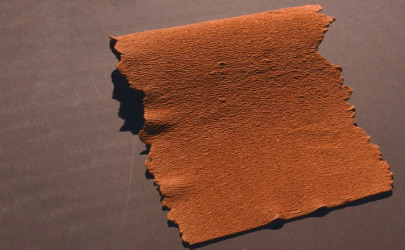Asia Pacific Bio-Based Leather Market: How Sustainable Innovations are Transforming Fashion and Automotive Industries

"The Asia Pacific bio-based leather market is rapidly gaining momentum, driven by increasing consumer demand for sustainable and cruelty-free alternatives. Countries like Japan, South Korea, and China are at the forefront of bio-based leather innovations, primarily due to heightened awareness about environmental issues and governmental regulations promoting eco-friendly materials. This market is characterized by a growing shift toward plant-based and microbial leather products, with applications across fashion, automotive, and upholstery industries. Key players in the region are investing in R&D for biodegradable, renewable materials derived from sources like mycelium (fungus-based), pineapple, and apple peels, aligning with the region’s sustainability goals.
The market is also witnessing strategic partnerships between fashion brands and bio-leather producers, further driving adoption rates. Asia Pacific's diverse manufacturing landscape provides a cost-effective advantage, which enhances production scalability, making these alternatives more accessible. However, challenges like production costs, limited raw material sources, and performance benchmarks compared to traditional leather remain areas of concern. Nonetheless, with continued innovations and supportive policy frameworks, the Asia Pacific bio-based leather market is projected to experience strong growth, with a CAGR forecasted to outpace the global average in the coming years."
The Asia Pacific Bio Based Leather market was valued at USD 21.06 million in 2023 and is projected to reach USD 57.50 million by 2030, with a compound annual growth rate (CAGR) of 16.30% from 2024 to 2030.
The adoption of bio-leather is becoming the norm in countries like China, Japan, and South Korea because of government regulations that encourage green alternatives and environmental concern. Customers that appreciate ethical fashion and less environmental impact are increasingly choosing bio-based leather as a plant-based substitute for animal leather.
Additionally, the market is growing due to the region's robust production capabilities and the rising demand in the fashion, automotive, and footwear industries. This rise is also fueled by significant expenditures in sustainable innovation and supportive policy. The market for bio-based leather is still growing as customers in the Asia-Pacific area look for eco-friendly materials more and more, making the region a major contributor to the global expansion of the sector.
Rising Consumer Demand for Sustainability.
Growing consumer knowledge of environmental issues and the moral ramifications of animal-based products is driving a shift in Asia-Pacific consumer preferences toward eco-friendly items. Younger, environmentally concerned populations are more likely to give sustainable options top priority when making purchases in urban areas, which makes this especially clear. Brands in the fashion, shoe, and accessory industries have taken notice, increasing the availability and marketing of bio-based leather goods that support these principles. Furthermore, social media and celebrity support for eco-friendly design are driving this demand and pushing customers to choose bio-based substitutes.
Many governments in the region are enacting policies that promote sustainable practices and the use of renewable resources.
Governments in Asia-Pacific countries such as Japan, South Korea, and China are increasingly implementing policies and providing incentives to reduce environmental impact through sustainable material use. For instance, China’s strict regulations on pollution and waste disposal support a shift toward renewable resources, including bio-based leather. Additionally, some governments provide funding for green technology innovation and research, helping manufacturers develop environmentally friendly alternatives to traditional leather. These policies not only encourage adoption within local markets but also support the growth of exports for bio-based leather products, as countries worldwide increasingly prioritize sustainable imports.
Rapid urbanization and increasing disposable incomes in Asia-Pacific countries are enhancing consumers' willingness to invest in premium sustainable products.
Rapid economic development and urbanization in Asia-Pacific, particularly in fast-growing economies like China, India, and Southeast Asia, have led to rising disposable incomes. This economic growth allows consumers to purchase higher-quality and eco-friendly products, including bio-based leather, which is typically priced higher than conventional leather. Urban populations are particularly drawn to premium products that reflect personal values of sustainability, further boosting demand. As more people move to urban centers and consumer spending increases, markets for bio-based leather goods in categories like fashion, automotive interiors, and furnishings are expanding.
Growth in Fashion and Footwear Industries.
The fashion and footwear sectors in Asia-Pacific are large and rapidly growing, with many brands increasingly embracing sustainable materials in response to consumer demand. Bio-based leather appeals to both high-end luxury brands and more affordable fast-fashion companies, allowing them to address ethical concerns and reduce environmental impact. The rise of local fashion brands emphasizing sustainable practices, combined with international brands seeking eco-friendly alternatives, has positioned the fashion and footwear industries as key drivers for bio-based leather adoption. Additionally, initiatives by major e-commerce platforms in the region promote sustainable brands, further elevating bio-based leather’s market presence.
Technological Advancements in Material Innovation
The region’s technological prowess supports significant advancements in bio-based materials, making alternatives like mushroom, pineapple, and cactus leather increasingly viable. Asia-Pacific’s strong manufacturing and technological sectors enable extensive research and development in sustainable materials, supported by local and international investments. Innovations in plant-based and lab-grown materials offer consumers options with durability, texture, and appearance similar to traditional leather, reducing barriers to adoption. Companies in countries like Japan and South Korea are also leading in developing advanced production techniques, making bio-based leather production more efficient and cost-effective.
Competitive Landscape
Some of the major companies operating within the Bio Based Leather market are: Ananas Anam Ltd., Ecovative LLC, Beyond Leather Materials, Fruitleather Rotterdam, Natural Fiber Welding, Inc., MycoWorks, Toray Industries Inc, Bolt Threads Inc., MODERN MEADOW and Others.